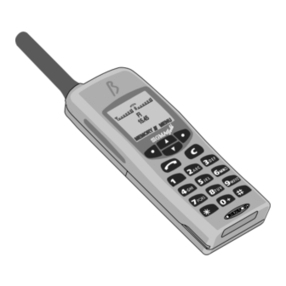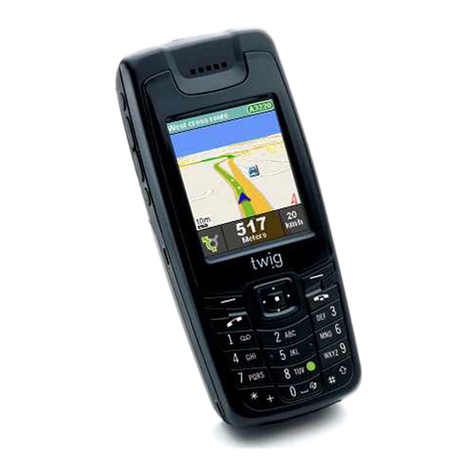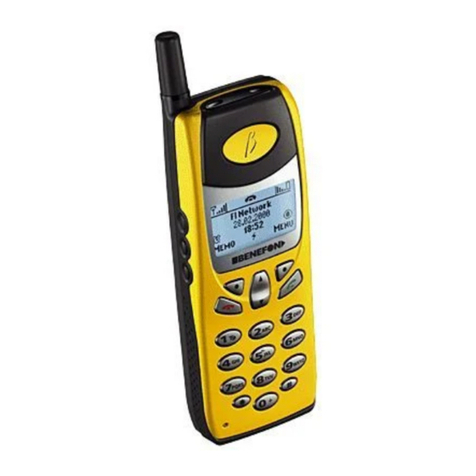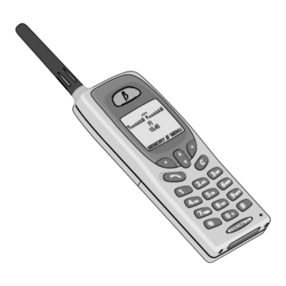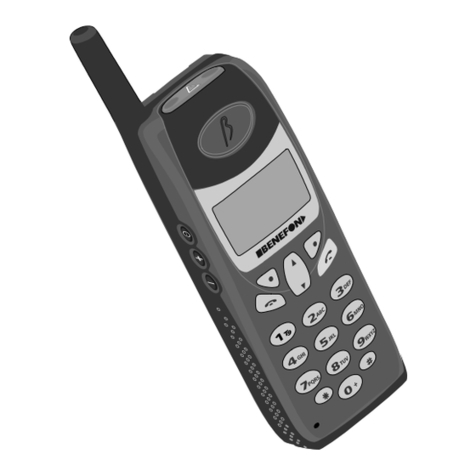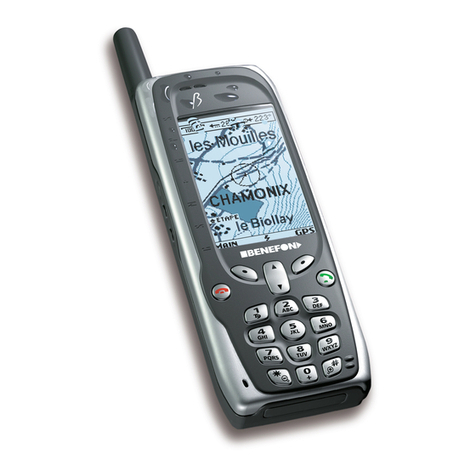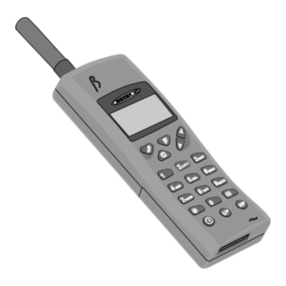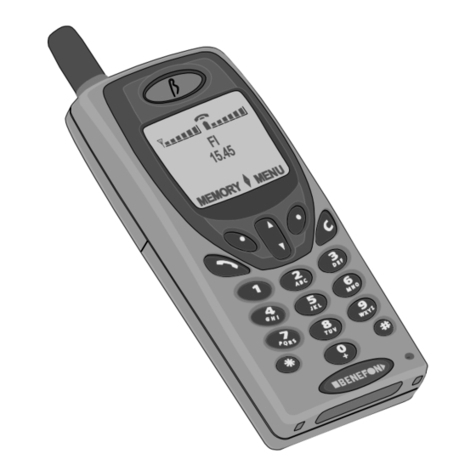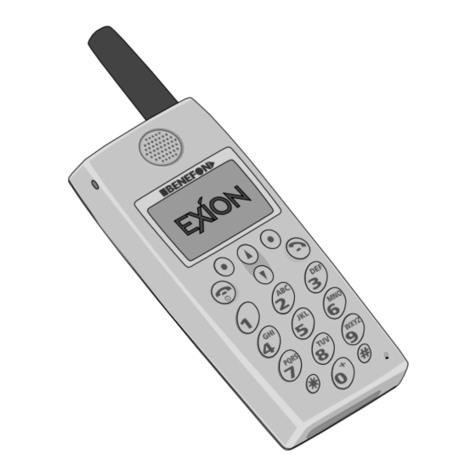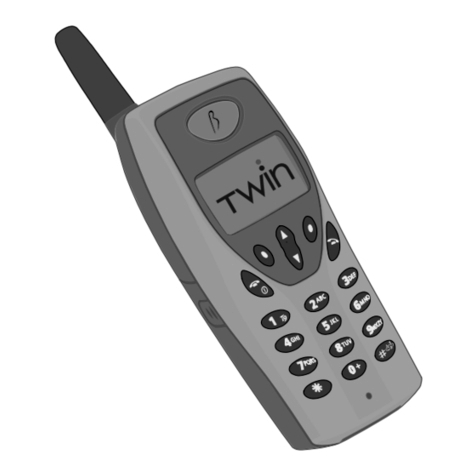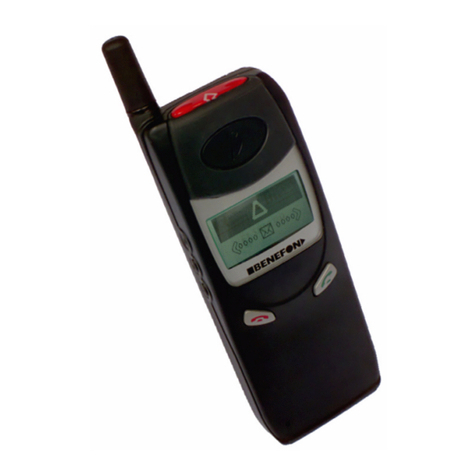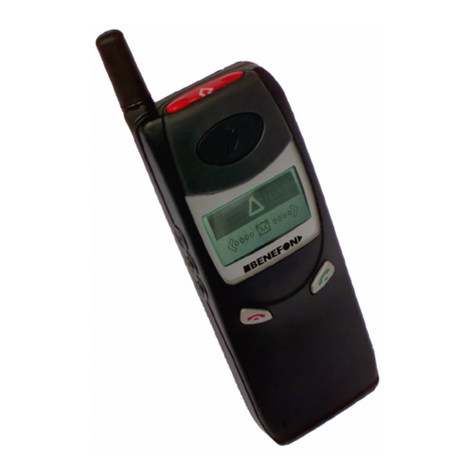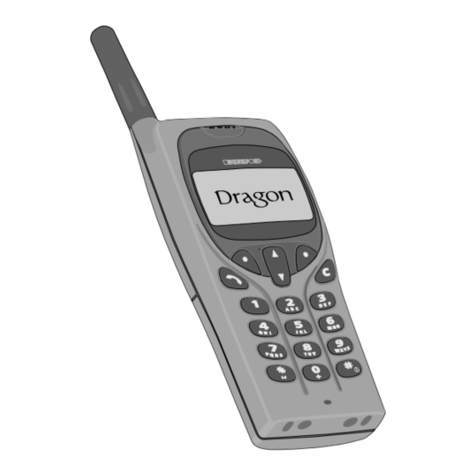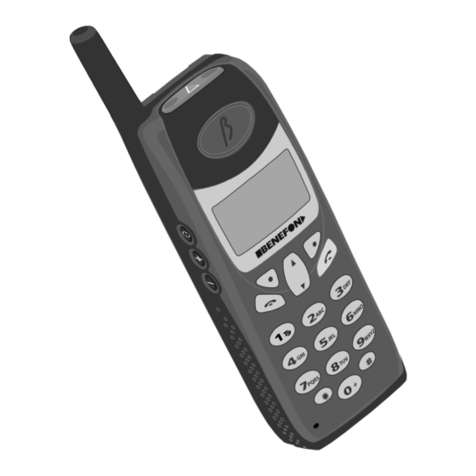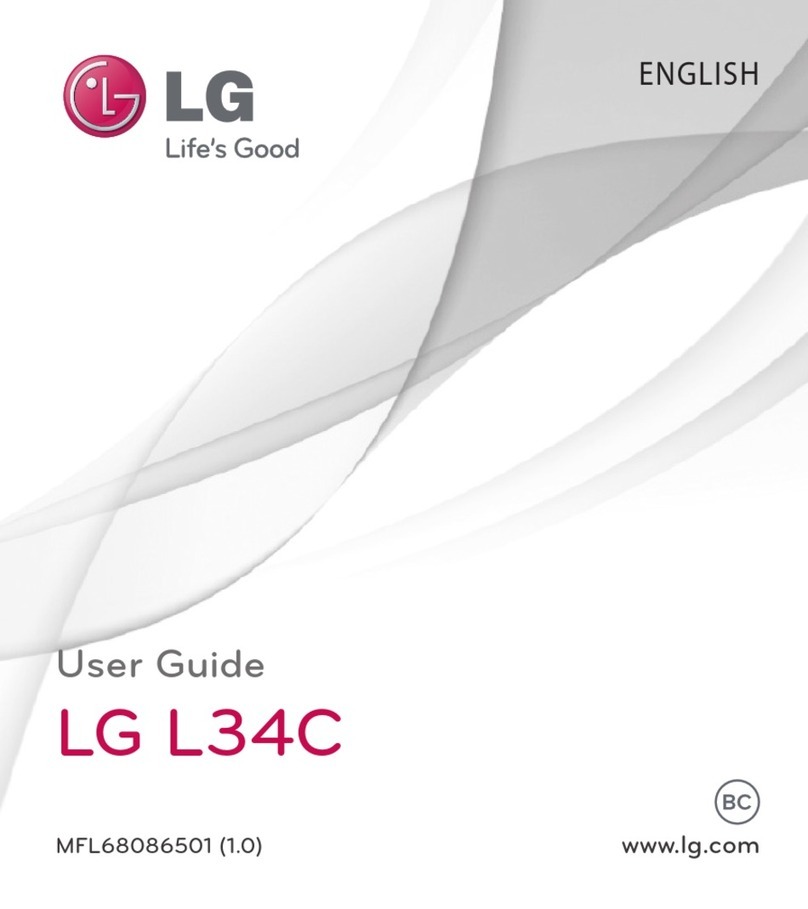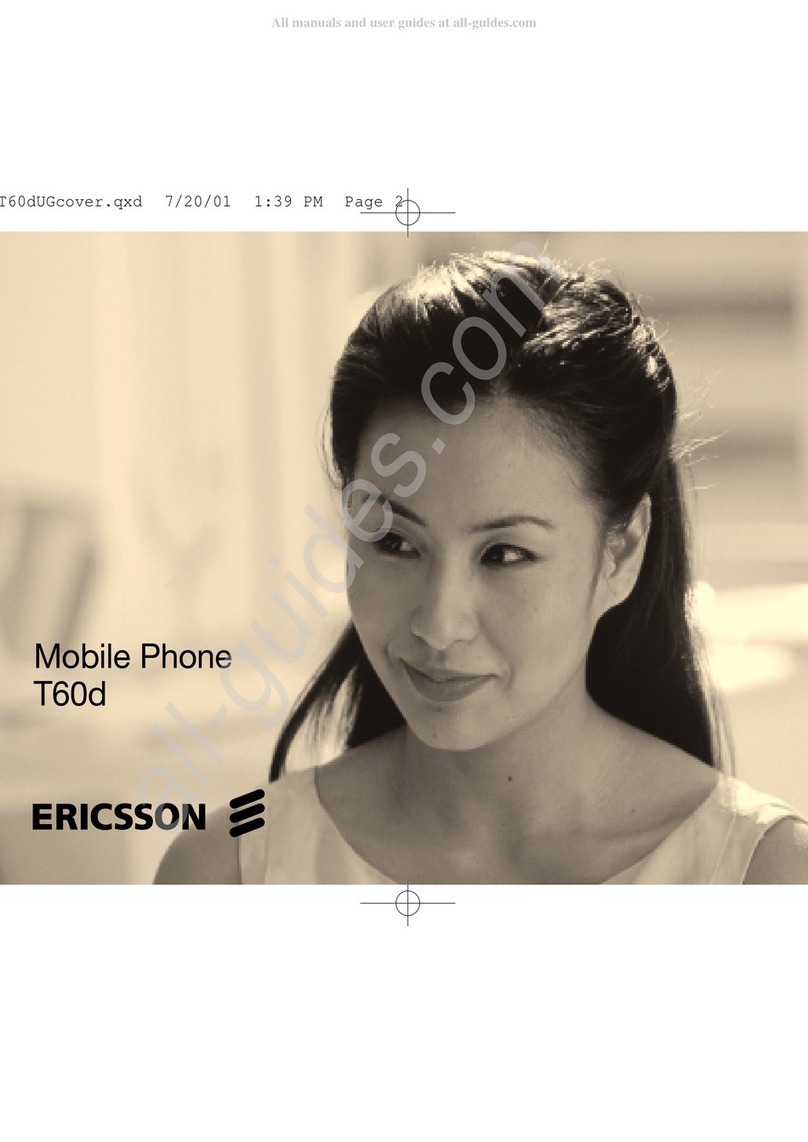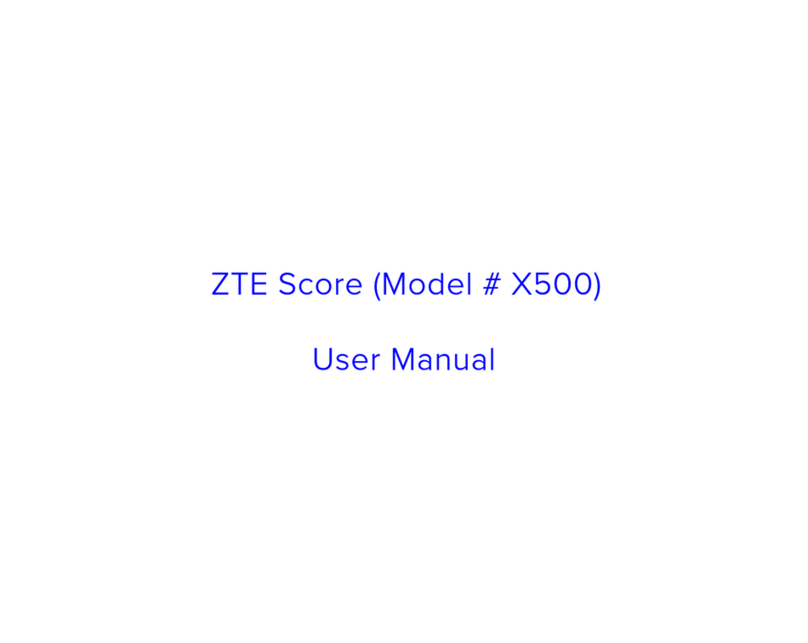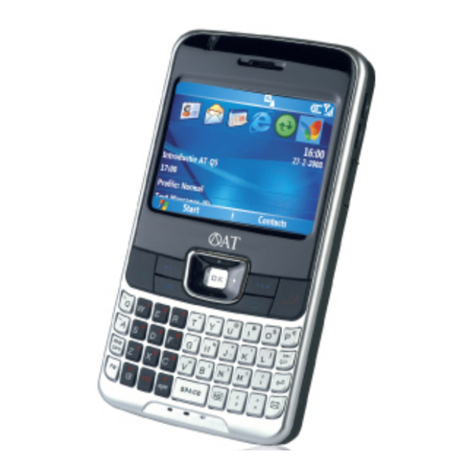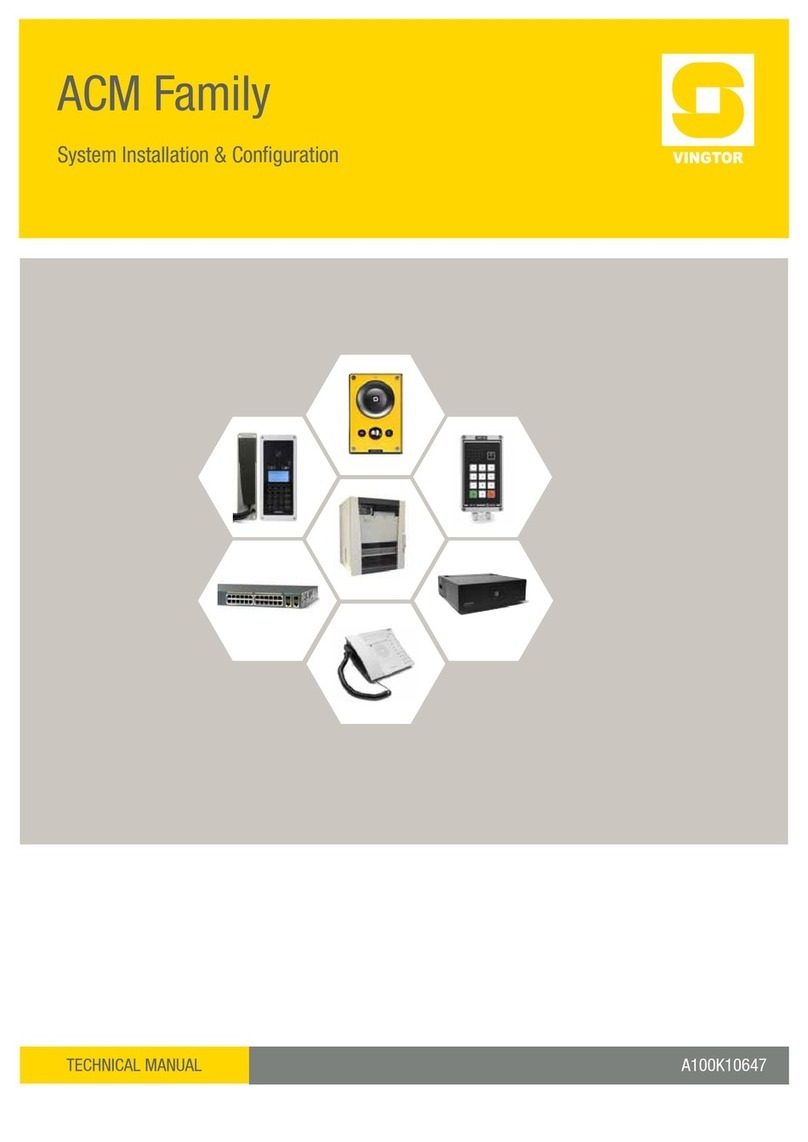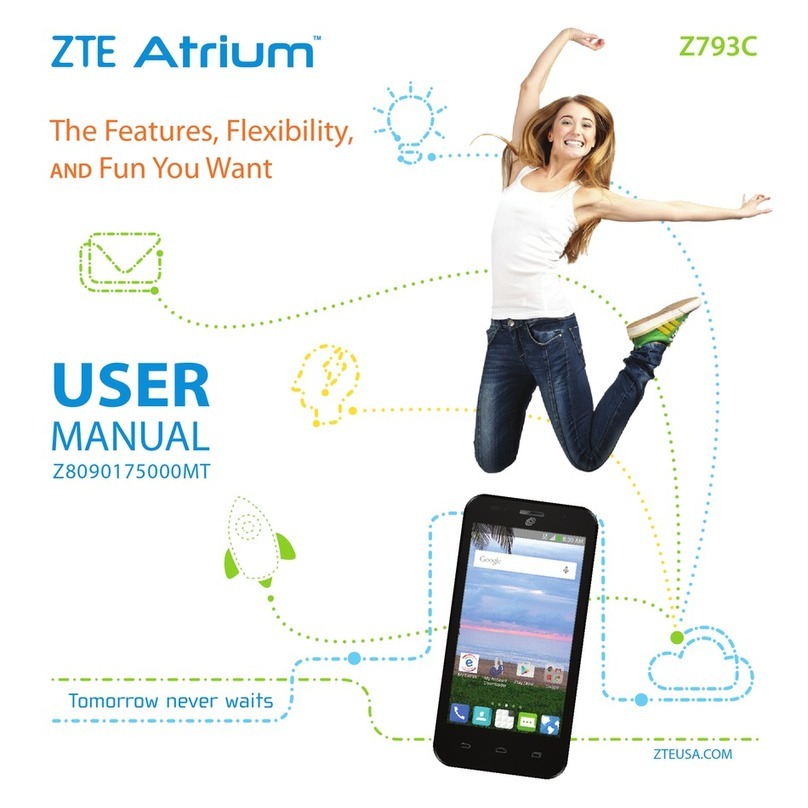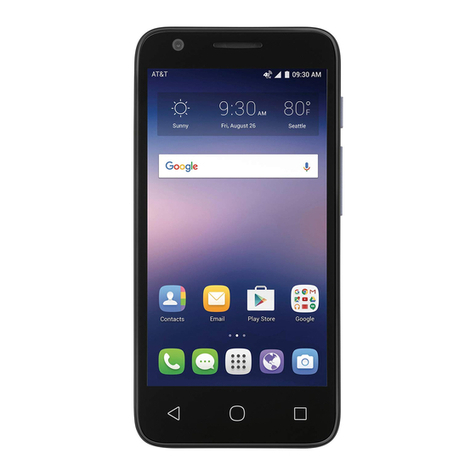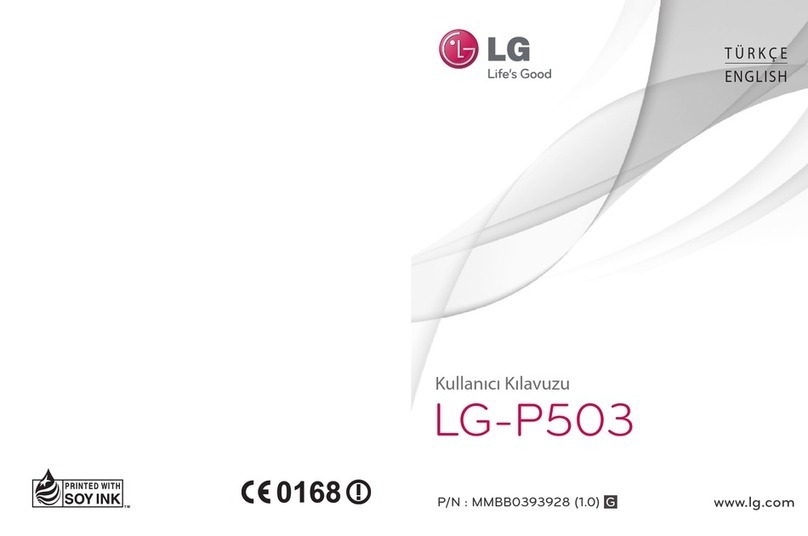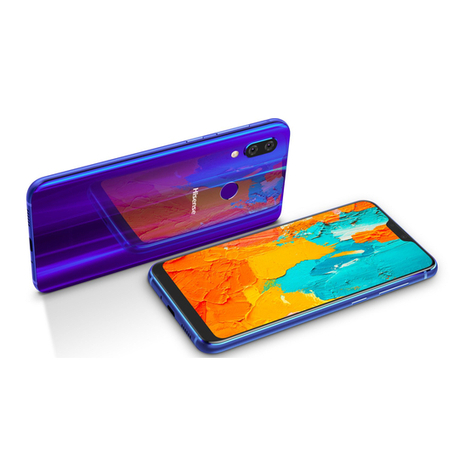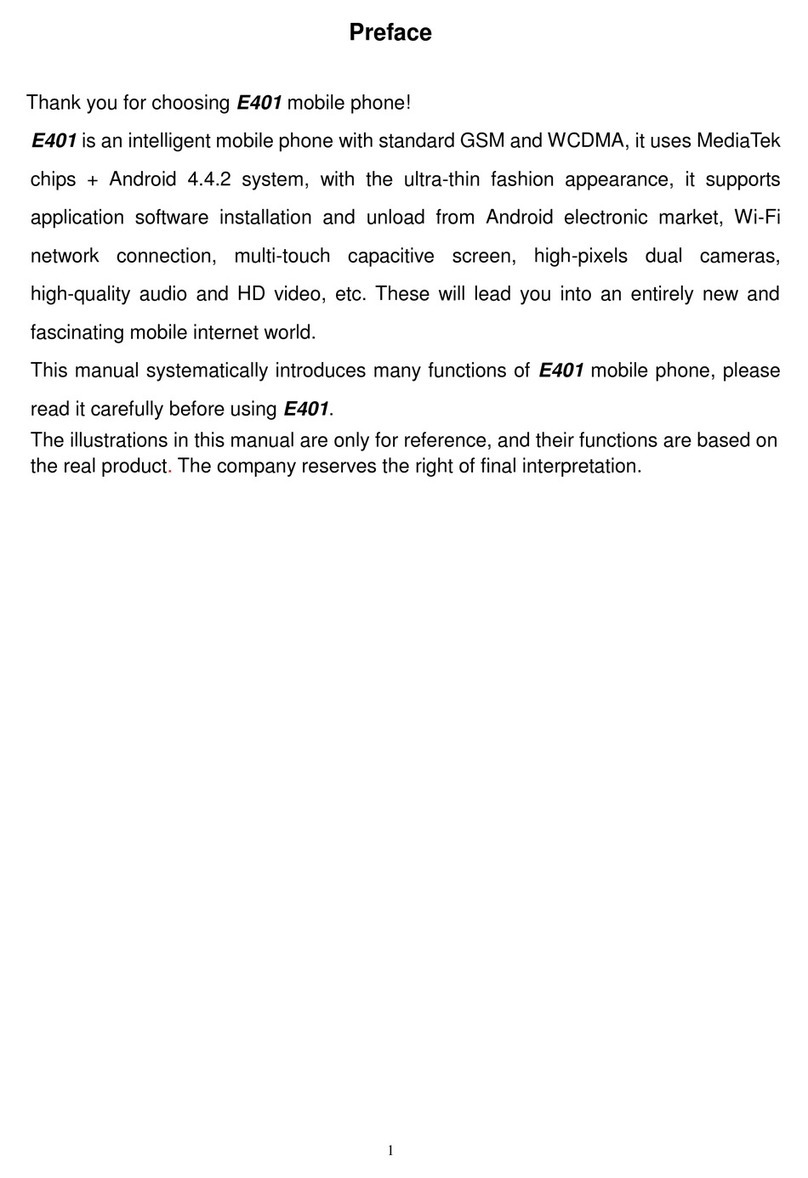
QUICK GUIDE FOR TRACK PHONES 5/6
SAFETY AND PRECAUTIONS
TELEMATICS PROTOCOL
MPTP (Mobile Phone Telematic Protocol) allows, among other
things, tracking of the phone over the SMS communication.
Automatically sent telematics messages are only allowed to au-
thorised numbers configured in the phone. Such numbers can
be, e.g. emergency and service center numbers.
Position of the phone is retrieved by the GPS, and/or by the net-
work parameters - the latter is a network-dependent service.
The carrier for telematics messages is an SMS-message. Deliver-
ies of all messages is fully handled by and in the responsibility of
the GSM network operator and services can vary substantially.
The charge of a protocol message is determined on the contract
by the service provider.
GLOBAL POSITIONING SYSTEM (GPS)
The GPS is a worldwide system of 24 satellites which orbit the
earth twice a day, transmitting precise time and position infor-
mation. The system is operated by the government of the United
States, which is solely responsible for its accuracy and mainte-
nance. The system is subject to changes that could affect the ac-
curacy and performance of all GPS equipment.
The GPS receiver in your phone receives signals from up to
twelve satellites at once, and using this information calculates
your position and tracks your movement on Earth, and also sets
your phone’s clock on time. Information must be received from
at least three suitably positioned satellites for position calcula-
tion. The signals sent by the GPS satellites are quite weak and do
not travel through solid objects, such as people, buildings,
rocks, or heavy tree cover. This may affect GPS receiver perfor-
mance indoors, in urban areas with tall buildings, or whenever
the GPS antenna doesn’t have an unobstructed view of the sky.
EMERGENCY CALLS AND MESSAGES
The phone is an aid and should never be relied upon as an only
emergency phone. Its functionality is dependent on GSM net-
work and GPS satellites which may not be available all the time.
To make emergency calls, the phone must be turned on and lo-
cated in an area with adequate GSM network signal strength.
Some networks also require that a valid SIM card is inserted in
the phone. Making BeneGuard emergency call, i.e. specific
emergency call to pre-configured numbers, also requires proper
configuration, GPS satellite coverage and a valid SIM-card.
Emergency calls may not be possible on all GSM phone networks
or when certain network services or phone features are in use.
In unclear cases, consult the network operator.
GENERAL NOTES REGARDING SAFETY
•Road traffic and driving: Strictly adhere to all eventual inter-
national and national legislation and also honour other even-
tual safety recommendations when using the phone while
driving a vehicle. It is advisable to install and use a hands-free
operating system in a car for minimizing the distraction from
using the phone. Make sure, the phone is secured in its holder,
do not place the phone on the passenger seat or some other
place where it can break loose in a collision or a sudden stop.
When receiving a call in an awkward driving situation, you must
always put safety before other priorities and courtesy: Pull off
the road and park before making or answering a call if driving
conditions so require. Do not use the phone at all while driving
if it is against national legislation or makes you feel uncomfort-
able.
•Vehicles with air bags: An air bag inflates with great force.
Do not place objects, including either installed or portable
wireless equipment, in the area over the air bag or in the air
bag deployment area.
•External alert: The use of the alert phone to operate a vehi-
cle´s lights or horn on public roads is not permitted.
•Children: Keep the phone and its accessories away from small
children to avoid causing injury to themselves or others. Dam-
age to the phone or its accessories is also thus avoided.
•Power supply:This equipment is intended for use with the
specified power supplies listed in this Quick Guide. Any other
usage will invalidate any approval given to this apparatus and
may be dangerous.
•Other accessories: Only use approved batteries, antennas
and chargers. The use of any unauthorized accessories, modi-
fications or attachments may be dangerous and voids the
phone warranty if said accessories cause damage or a defect to
the phone. Check the compatibility of new power supply units
and other accessories at the dealer or manufacturer.
•Conductive materials: Make sure, the batteries and spare
batteries are kept away from conductive materials, such as
coins, jewelry, keys, and other metal objects, because a close
contact of these materials and batteries can cause short-cir-
cuit, injury, burns or some other damage. Be especially care-
ful when placing batteries inside your pocket, purse, or other
container with metal objects.
•Power cord: Disconnect the power cord of any accessory by
grasping and pulling the plug, not the cord.
•Connections: All installations, connections and service
regarding the phone, its power supply and accessories should
be approved by the phone manufacturer. Use of any unautho-
rized accessories, modifications or attachments may be dan-
gerous and voids the phone warranty if said accessories cause
damage or a defect to the phone.
•Magnetic fields: The phone contains small magnetic compo-
nents. Even though the magnetic fields of the components are
weak, they might damage magnetic cards, such as bank and
credit cards. We recommend that you would keep the phone
away from magnetic cards.
•Storing positions (and other memory data): Position infor-
mation is stored correctly in the phone when the GPS is
turned off (from the GPS menu) or powered off (by pressing
the topmost side key). To prevent the memory from becoming
corrupted, never power off the phone by removing the battery.
RADIO FREQUENCY (RF) ENERGY
•Normal operation: Hold the phone as you would hold any
other phone, with the antenna pointed up and over your
shoulder. Do not touch the antenna unnecessarily when the
phone is in use, because it affects call quality and may cause
the phone to operate at a higher power level than needed.
•Aircrafts: Turn your phone off before boarding any aircraft
and do not use the phone while in the air. Also make sure that
an automatic timer function will not activate the phone during
the flight. Besides being illegal, the use of a mobile phone in
an aircraft may endanger the operation of the aircraft or dis-
rupt the mobile network. Failure to comply with this instruc-
tion may lead to suspension or denial of mobile phone
services, and possibly even legal action.
•Hospitals: Turn your phone off before entering hospitals or
other health care facilities where medical electronic equip-
ment may be in use. Such devices can be extremely sensitive
to radio frequency interference. Only use the phone with per-
mission and under the instruction of hospital staff.
•Medical devices: Remember that any personal medical





